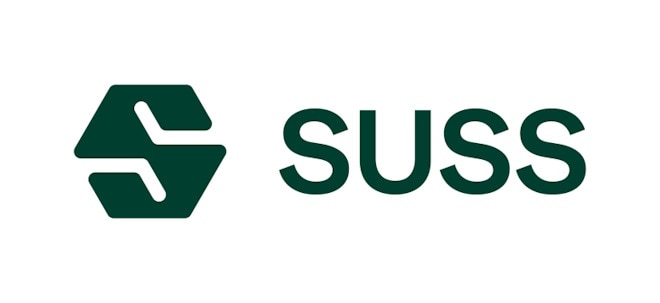On Track Innovations CEO Resigns; Failed to Cut
Losses or Significantly Increase Share Value
Published: Feb 18 2015
By: Dan Balaban and Kiona Smith-Strickland
NFC Times Exclusive Insight – Israel-based
contactless reader and NFC company On Track
Innovations Tuesday announced the resignation of
CEO Ofer Tziperman after less than two years on the
job, with observers chalking up the exit to
insufficient progress Tziperman has made in
turning around the company’s finances and its low
share price since a board takeover by dissident
shareholders in late 2012.
Tziperman had tendered his resignation a week earlier to
the board, on Feb. 10, one day after U.S.-based venture
capitalist and turnaround artist Dilip Singh had replaced
Dimitrios Angelis as chairman of the OTI board. Singh,
who helped lead the takeover of the board in late 2012
and who might be named as the next CEO of OTI himself,
like other leaders of the takeover, has bought thousands
of shares with the expectation that the share price would
increase substantially.
Tziperman, who was an unexpected choice when he was
named CEO of the struggling vendor in March of 2013,
will continue to serve as CEO until the board hires a
replacement and completes that transition, or until no
later than August 10, according to an official statement
by the company Tuesday. Along with his position as CEO,
Tziperman also resigned from his roles as executive
officer and board member at OTI’s subsidiaries.
An official statement from OTI claimed Tziperman
resigned his positions for “personal reasons,” and said his
decision to resign was “not due to any disagreement with
the company over any of its operations, policies,
practices or otherwise.”
Some observers, however, believe Tziperman was forced
out after he failed to increase OTI’s share price
significantly during his 23 months at the helm and could
not sustain a boost in the share price following the
announcement of Apple Pay, which stands to help sales
of OTI’s contactless readers.
Moreover, Tziperman, in November, during the
company’s Q3 2014 conference call with analysts,
disclosed the company was substantially scaling back
projections for a return to profitability and revenue
growth.
Leaders of the successful proxy battle, which led to the
ouster of longtime OTI CEO and co-founder Oded
Bashan–who had presided over 22 years of losses at
OTI–had been hoping for much higher returns. They had
performed the trick at other struggling companies.
Singh, for example, helped lead takeovers of U.S.-based
MRV Communications and PLX Technology, both based in
California. PLX’s share price doubled, and the company was later sold. And Singh
served as CEO of MRV for one year.
Besides expecting Singh to serve a stint as OTI’s CEO, some observers believe he
and the OTI board might be put OTI up for sale.
But investors were not apparently impressed by Singh’s appointment as CEO. OTI’s
shares closed down 8% after news of the executive change Tuesday and were
trading down by an additional 6.5% in early afternoon trading in the U.S.
Wednesday.
That put shares of the Nasdaq-listed company at
US$1.50–not even 10% higher than when the new board
took over in late December of 2012.
During the quarter following that takeover, before
Tziperman was named CEO, sales dropped 32%, causing
the company’s already low share price at the time to fall
even further, dipping below $1 in March of 2013. The
price later recovered and climbed.
But the launch of Apple Pay brought only a brief rally to the company’s share
prices. OTI opened at $3.81 on Sept. 10, the day after Apple announced its entry
into the NFC mobile-payments market. The launch looked likely to bring an
increase in NFC reader sales for OTI, and the company’s share price peaked at
$5.00 on Sept. 10 before closing the day at $3.55, up from the previous day’s
close of $3.32.
New Chairman Named
Earlier this month, OTI’s share price rose 4.2% on the news that the company had
named board member Singh as its new chairman, to replace Dimitrios Angelis, CEO
of subsidiary OTI America.
Tziperman’s resignation Feb. 10 came just a day after the company elevated Singh
to chairman. Both he and Angelis had been among the eight new board members
appointed in 2012 when Jerry Ivy, then OTI’s second-largest investor, was
recruited by them and other leaders of the takeover. Besides ousting Oded Bashan,
the board shake-up also led to the departure of Bashan’s son, Ohad, who was chief
marketing officer and head of OTI America.
Singh, like other leaders of the proxy fight, had previously participated in takeovers
of other companies, some of which he later headed.
And Singh bought 24,328 shares in June 2014, worth a total of just over $61,000
at purchase, a substantial loss from the value of the shares today. He was not,
however, the only board member to buy shares, nor is he believed to be the
largest investor on the board. In August 2013, several of the new board members
were “actively buying” OTI shares on the open market during open trading
windows, in compliance with the company’s policy on insider trading. The
unspecified number of board members had purchased a total of 735,000 shares by
late August. In early December, board member Alfred John Knapp, Jr. disclosed his
purchase of 100,000 shares, then worth a total of about $166,000. Tziperman
bought 10,000 shares in early December, as well, worth $17,800.
Angelis, who has been the public face of OTI’s patent infringement lawsuit against
T-Mobile USA, retains his position as CEO of subsidiary OTI America. He had held
the chairman position since May 2013. Currently, Angelis is also general counsel of
pharmaceutical company Wockhardt, Inc.
Singh had served as CEO of InfuSystem Holdings, Inc., until his resignation in
March 2013. He is a former CEO of several telecommunications companies,
including equipment and services vendor MRV Communications, Asian mobile
network operator Telia-Sonera Spice Nepal, and telecommunications service
platform and software vendor Telenity, Inc.
CEO Fails to Turn Company Around
In what was considered a surprise move, OTI’s new board hired Tziperman, then a
current executive with the company.
Tziperman, 50 at the time, had served as president of OTI’s parking payments
business, Parx, which ran the vendor’s EasyPark electronic parking metering and
payments product line, since 2011.
He had earlier worked at OTI, serving nearly five years as vice president of
marketing and sales in the late 1990s, before leaving to co-found an Israel-based
mobile location-based services company, LocatioNet Systems.
“We’re very, very busy serving our customers; we didn’t have time to bring
someone in from the outside,” board member Chuck Gillman, one of the leaders of
the dissident shareholders and who has been a spokesman for the group, told NFC
Times at the time. “The most important thing was he was a person already inside
the organization, as it existed.”
Under Tziperman, the Israel-based vendor has seen sales of contactless readers
increase substantially, and OTI is expected to report an increase in revenue in
2014.
Tziperman sold OTI’s Smart ID system integration unit in mid-2013 for $10 million,
plus a possible $12.5 million in performance-based milestones, as he sought to
focus on contactless and NFC.
But losses are also expected to increase in 2014, and Tziperman was considered
too slow to cut costs, with significant layoffs coming only in mid-2014, according to
a source.
And sales of OTI’s NFC-enabled attachment, Wave, which fits into the audio jack of
smartphones and enables payment applets to run on an embedded chips, have
been disappointing. Purported rollouts by banks in Hong Kong and Taiwan have
turned out to be small, and it’s not clear whether the device has even been
approved or certified by Apple.
In May 2014, Tziperman projected that OTI would report a profit in the first quarter
of 2015. By the end of 2014, however, the company’s leadership had pushed that
prediction back to the third quarter of 2015 and also revised estimates for 2014
revenue growth down to 10% from earlier projections of 30%. The vendor’s share
price fell on the news.
It remains to be seen whether 2015 will be the year in which OTI reports positive
EBITDA for the first time in the company’s 25-year history, but if it does, it will do
so under a new CEO.
© NFC Times and Forthwrite |


 Thread abonnieren
Thread abonnieren

